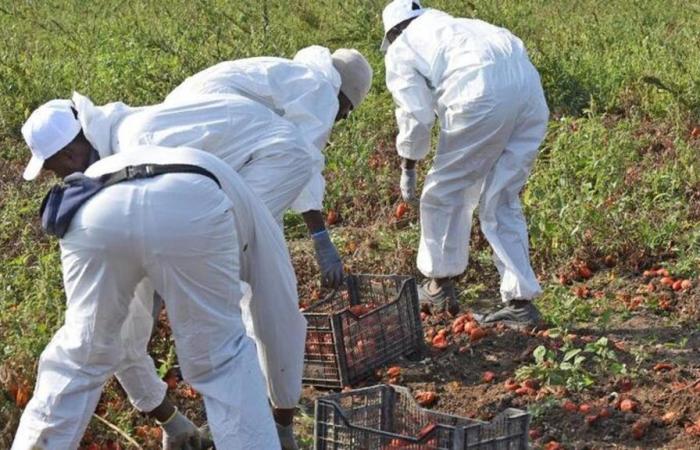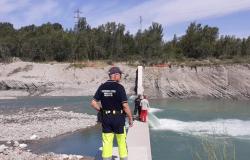“The annual turnover attributable to irregular work in Veneto amounts to 4.6 billion euros. If we relate this amount to the total regional added value, the share is equal to 3.1 percent. In Friuli Venezia Giulia, the turnover attributable to irregular work is 1.1 billion, corresponding to a share of 3.2%. Together, the two regions total 5.7 billion. Of all the regions in Italy, only Lombardy has a lower incidence than Veneto and Fvg. This means that the weight of the “black” in the two regions of the North East is very limited. Despite this, this social scourge must be constantly monitored and fought wherever it nests.”
And, again, «the people involved in the underground economy in Veneto are estimated at 185,400 units, equal to 6.5 percent of the national total; in FVG we are 46,400 units, equal to 1.6 percent of the national total. In absolute terms, the army of invisible workers is significant even if, obviously, it is scaled down when we relate it to the number of employed people. In fact, the irregularity rate in Veneto is 8.1 percent, in FVG at 8.6 percent (a positive record for the Autonomous Province of Bolzano which stops at 7.9 percent). Although there is no data at a regional level, we are able to estimate with good approximation that also in Veneto and FVG the sectors where the greatest number of irregular workers is concentrated are personal services (housekeepers and carers), agriculture, construction and the hospitality sector».
The ones just mentioned are some flashes that emerged from an analysis conducted by theCGIA research office.
Black economy at its best in Calabria, Campania and Sicily
The added value produced in 2021 by irregular work in Italy amounted to 68 billion euros, of which 23.7 billion in the South, 17.3 in the North-West, 14.5 in the Center and 12.4 in the North-East. If we measure the percentage impact of this amount on the total regional added value, the highest share, equal to 8.3 percent, concerns Calabria. Campania follows with 6.9 percent, Sicily with 6.6 percent and Puglia with 6.2 percent. The national average is 4.2 percent. Of the 2,848,100 irregular workers estimated in Italy by Istat, 1,061,900 are located in the South, 691,300 in the North-West, 630,000 in the Center and 464,900 in the North-East. If we calculate the irregularity rate, given by the ratio between the number of irregulars and the total employed by region, the most significant presence is always recorded in the South and, in particular, in Calabria with 19.6 percent. Campania follows with 16.5 percent and Sicily with 16 percent. The average figure in Italy is 11.3 percent.
A lot of illegal work has become forced labor
After the economic crisis caused by the pandemic, in some areas of the country important parts of the economy came under the control of mafia-type criminal organizations which combined the massive economic investments with the use of violence, threats and the seizure of documents to “win” the favor of large masses of workers, especially foreigners. The application of these coercions has transformed many pockets of the underground economy into forced labor, causing many Italians who were in vulnerable conditions to slip into this infernal circle.
Gangmastering and agri-food
The phenomenon of illegal/forced labor has always been linked to gangmastering. Indeed, in many cases the former is the antechamber of the latter; not only in agriculture or construction, but also in textiles, logistics, delivery and assistance services. Those who are exploited are the most vulnerable, such as people in extreme poverty, immigrants and women. The sector most affected by this social and economic scourge is certainly agriculture. The exploitation of labor in this sector can be traced back to the simultaneous presence of these critical issues:
the massive use of labour for short periods and in isolated places, often leading to the creation of informal settlements;
the inadequate conditions of both transport and accommodation services;
the precarious or irregular legal status of several migrant workers.
Phenomena of gangmastering against immigrants have been present for many decades in the Agro Pontino (LT), in the Agro Nocerino-Sarnese (SA), in Villa Literno (CE), in the Capitanata area (FG) and in the Piana di Gioia Taurus (RC). Not to mention that for at least twenty years dozens and dozens of cases have been discovered and prosecuted by the police even in the agricultural areas of the Northeast.
Stop the monopoly of a few large ones
The tragedy that occurred last week in the Agro Pontino countryside is certainly the result of the exploitation and slavery practices practiced by agricultural entrepreneurs in that area.
Exploiting the irregular status of migrants, entrepreneurs involve workers without guaranteeing regular contracts, paying low wages and triggering a series of problems related to housing, transport and social services. However, it should not be forgotten that these criminal behaviors are often induced, not only in the South, by the structure of the agri-food market which is often monopolized by a few large-scale distribution companies which continue to squeeze small farmers, who are forced to remain on the market reduce the salaries of the workforce, thus fueling the gangmaster system even more. Despite Italy having implemented the EU directive against unfair commercial practices and below-cost sales, large-scale retail trade continues to maintain stable price lists despite the price increases, putting many small producers in serious difficulty. Finally, we would like to remind you that the Italian legislation just mentioned has excluded from the scope of application the contributions of members in cooperatives and the transfers of agricultural and food products to producer organisations. This means that those who transfer their foodstuffs to the cooperative or producers’ organization cannot count on the protections provided by law with respect to payment times and against sales below cost. Therefore, in addition to modifying the national law by also including these subjects among those who cannot carry out unfair commercial practices, inspection activity must be encouraged, while ensuring, at the same time, a strong increase in public investments in the transport sector and temporary housing solutions that allow a dignified life for these people.






